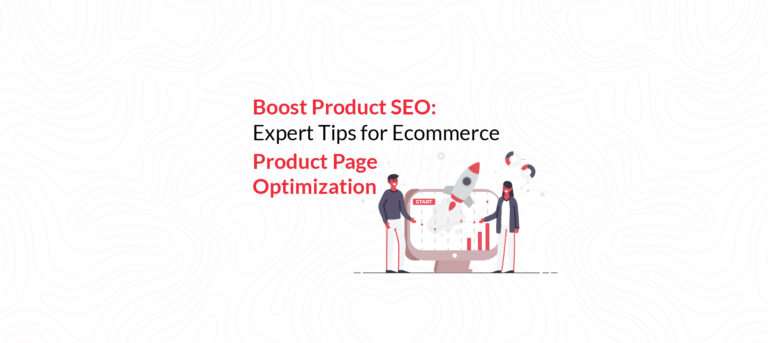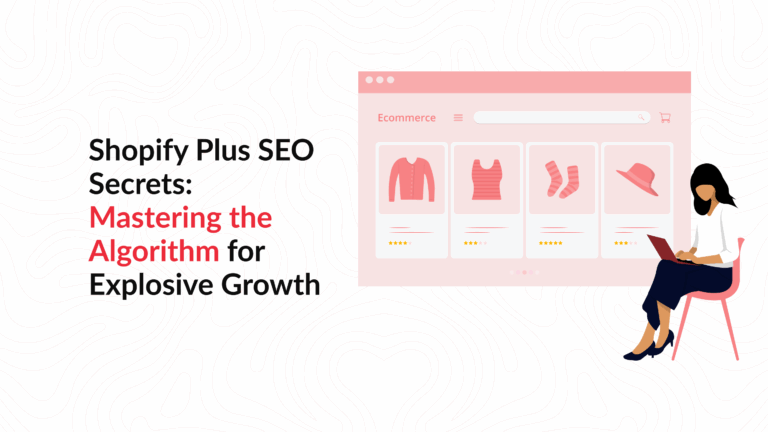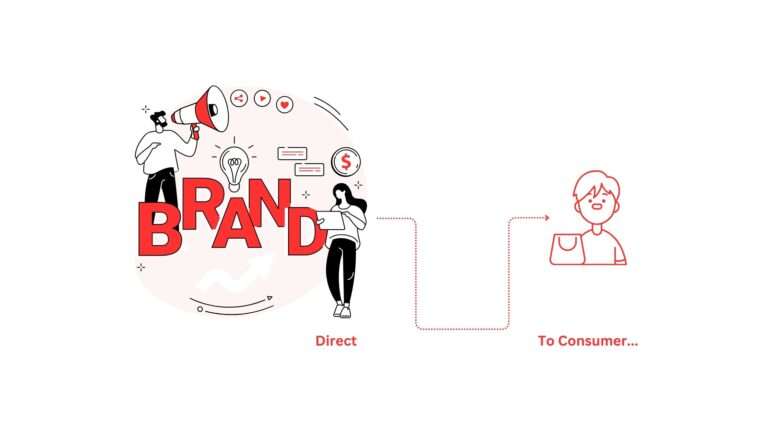The Future of Retail: Why D2C Brands are Leading the Way
A company that manufactures a certain product in-house and then distributes it through its own channels is a direct-to-consumer or a D2C business. These channels might be retail locations, social media platforms, or e-commerce sites. Over the past ten years, the direct-to-consumer (D2C) business model has drastically altered the retail environment. D2C companies have circumvented traditional retail channels by using social media to develop their brands, attract clients, and fulfil orders. These brands can grow their business further with the implementation of advanced marketing and digital advertising services.
Key Factors Driving the D2C Movement Forward
Here are a few factors that D2C brands need to take into consideration to improve e-commerce sales:
1. Matching the brand to the expectations of the consumer
In direct-to-consumer sales, your clients’ perceptions of your brand are influenced by every facet of their buying experience. As a result, your duties will include offering thorough product instruction, a simple checkout experience, planned delivery, easy exchange and return procedures, and customer support.
2. Increasing the service’s value
Conventional retailers make significant investments in offering their consumers benefits like wish lists, free shipping, membership programs, free exchanges, return click-and-collect, and so forth. As a result, you need to offer them something more worthwhile to entice them to purchase from you directly rather than their favorite vendors.
3. Changing one’s perspective
Once you take traditional merchants out of your clients’ buying experiences, you will have to fulfill the role of the retailer on your own. Now that you are in charge of order fulfillment and transaction facilitation, concentrate on how you can provide the best experience and streamline each step of the customer’s purchasing process.
The Advantages of D2C for Modern Consumers
A D2C business gives you the opportunity to test new goods on a smaller scale, with specific target audiences, and to get customer feedback. In this manner, you are better able to comprehend what consumers desire, create products that sell, and make necessary improvements. Other advantages are listed below:
1. Direct access to clients’ information
Direct communication with clients throughout the whole purchasing process, including after a sale, makes it possible to gather information about their location, social media profiles, email addresses, and preferences for purchases, among other things. Understanding customer purchasing patterns enables producers to enhance current offerings and maybe even launch new product categories.
2. Increased fidelity to the brand
With D2C, manufacturers have greater freedom to give their consumers better support and service. Through focused marketing efforts, they may take advantage of their relationship with customers to build trust and increase retention.
3. Increased market potential
When selling direct-to-consumer, manufacturers are no longer constrained by location. All they need to do is sell to the appropriate consumer categories in the appropriate markets to become global.
Technological Innovations Propelling D2C Brands
Technological developments are essential to the growth and success of direct-to-consumer brands. This is where Opositive can help you in scaling your business. The suite of services that we offer can help you acquire and retain high-value customers and drive holistic growth with data-backed strategies. Some of the technological innovations that we use include:
1. Using Big Data: Customer information is transformed into dependable machine learning algorithm fuel. Based on specific consumer demands, these aid in trend prediction and the refinement of marketing campaigns.
2. Attractive CTAs: Through ‘click to purchase’ and other CTAs, social media and internet platforms increase company awareness, foster customer interaction, and increase online sales.
3. Digital Tools for Personalization: Technologies like augmented and virtual reality make customized shopping experiences that increase customer happiness possible.
Inspite of the implementation of these technological innovations, there can be challenges in the functioning of the D2C brands. But, these challenges can be overcome with the right team of experts. Let us talk about these challenges and how D2C brands can overcome these challenges.
Challenges Faced by D2C Brands and How They Overcome Them
1. Supply Chain and Inventory Management
D2C businesses confront a major issue in balancing inventory levels to satisfy demand while avoiding surplus stock. To guarantee that clients receive their purchases on time, it is also essential to optimize supply chain logistics for effective order fulfillment. D2C brands may utilize inventory management software to estimate demand and track inventory levels in order to overcome this challenge. In order to guarantee order delivery on time, they might also collaborate with reputable logistics companies.
2. Acquiring and Maintaining Customers
For D2C companies, getting noticed and gaining clients in a saturated industry is a major issue. Long-term success depends on attracting the correct audience and cultivating a devoted following of customers. D2C firms may address these issues by investing in marketing automation solutions offered by digital advertising experts like Opositive for better client acquisition and retention, as well as in targeted advertising and social media marketing to reach their target demographic.
3. Remaining Flexible in a Changing Market
D2C brands must adjust to shifting customer trends and market conditions. To remain relevant in a changing industry, one must embrace innovation and keep one step ahead of the competition. D2C firms may remain ahead of the curve by investing in innovation and new product development to overcome these obstacles. Additionally, they might carry out market research to be abreast of evolving customer tastes and trends.
D2C and Social Media: A Match Made in Marketing Heaven
An important factor in the expansion of a Direct-to-Consumer (D2C) company is social media. It can assist D2C companies in attracting low-cost consumers and converting them into devoted, recurrent, and highly compensated clients. D2C firms may use social media to promote brand recognition and leverage word-of-mouth; they can also use it better to understand the preferences and interests of their audience, drive visitors to their store, increase sales, and foster customer loyalty and engagement.
Comparing D2C and Traditional Retail Models
Customers may provide direct feedback to D2C brands. Customers might be questioned about unfulfilled demands. In conventional retail methods, brands don’t engage in direct sales. As a result, they find it challenging to recognize and address unmet client demands. D2C brands have higher profit margins since they do not use intermediaries. It is an economical and successful method of consumer acquisition. Traditional retail business strategies result in higher expenses for brands because of intermediaries and their commissions.
Success Stories: D2C Brands That Are Changing the Game
Let us talk about some D2C brands that have been able to scale their business over the years.
Alphavedic: Established in 2019, Alphavedic, a direct-to-consumer (D2C) company founded by Shrey Jain and Shruti Khare, is a bootstrapped company that offers Ayurvedic cosmetics and personal care items. The firm provides a variety of cosmetic goods, including lip balms, lotions, shampoos, conditioners, and hair care items, with 24 stock-keeping units (SKUs) in its portfolio. At a time when the beauty care segment was dominated by legacy players like Lakme, L’Oreal, and Maybelline, this new player was able to focus on customer acquisition, manage marketing costs, and sustain and grow its business.
Bacca Bucci: Anuj Nevatia and Natwar Agrawal were quietly building their own business in the footwear sector even before Gen Z vocabulary picked up keywords like sneakers and running shoes. Nevatia’s decision to concentrate on footwear was largely influenced by business seasonality, the market’s organization, and the everlasting demand for shoes. These elements helped to establish Bacca Bucci, a direct-to-consumer (D2C) footwear brand, in 2015.
Emerging Trends in D2C Retailing
The brands discussed above, and the major players in the D2C segment keep themselves updated with the latest trends. Let us take a look at some of the emerging trends in D2C retailing:
- Many bigger B2B companies will establish their own D2C channel in order to compete with leading D2C brands. Fewer people visit physical stores due to the ease of online shopping. Therefore, in order to build stronger ties with their consumers, traditional businesses need to establish their digital presence to interact with potential customers online.
- Even if D2C businesses provide functionality, they could do more to personalize their consumer experiences. Brands that provide direct-to-consumer subscription services could allow for greater ordering flexibility.
- Presently, B2B enterprises establishing a fresh direct-to-consumer (D2C) avenue possess an edge over their competitors due to their ability to devise a versatile digital commerce platform that facilitates prompt adjustments to the fluctuating needs of the markets. D2C firms have the advantage of implementing new and highly adaptable solutions, such as a headless or composable approach, to their digital commerce platforms from the outset, while rivals are hampered by legacy systems and old software.
Starting Your Own D2C Brand: Strategies for Success
Creating a distinct and memorable identity is the first step in developing a successful direct-to-consumer brand. Here is how you can start your D2C brand:
1. Creating a Brand Identity
Every facet of your business’s personality, such as the logo, website layout, and general message sent via your marketing campaigns, should be included in your brand identity. To establish a brand that genuinely connects with your target audience, it is equally critical to understand their needs and expectations.
2. Creating an Interface That is Easy to Use
Your Direct-to-Consumer (D2C) brand’s online store is your website. That’s why it’s crucial to make sure it gives your customers a flawless experience. Creating an intuitive user interface that makes transactions simple is essential to achieving this. In this sense, a user-friendly, visually appealing, and clean website style may work wonders.
3. Establishing Your Marketing Goals
Traffic and conversions are largely influenced by marketing, and a well-thought-out plan that targets your target market may greatly increase brand awareness and engagement. Setting specific goals for your marketing and precisely defining your audience are also crucial.
4. Providing Outstanding Customer Service
Excellent customer service is the foundation of client loyalty and is essential to fostering long-lasting connections and guaranteeing repeat business. Giving your customer care staff thorough training will enable them to handle a variety of situations with effectiveness.
5. Prioritizing Innovation and Quality
Building trust and a devoted following is important for any direct-to-consumer business. In order to do this, you must always offer top-notch goods or services. Continue to innovate and improve while keeping abreast of consumer tastes and market changes. Make research and development investments to make sure your products meet the changing needs of your customers.
Avail of our consulting and branding services to know more about how you can start and grow your D2C brand.
Conclusion
Going direct-to-consumer (D2C) offers several advantages, including enhanced control over the client experience, better profitability, and increased agility. It will be interesting to observe how this model continues to affect the eCommerce industry in the years to come as more and more businesses decide to adopt it.














